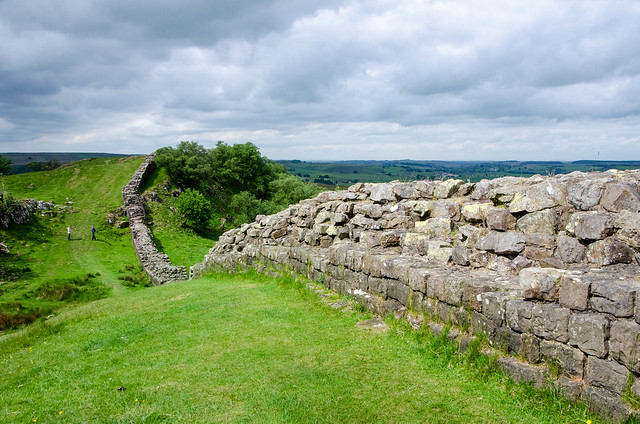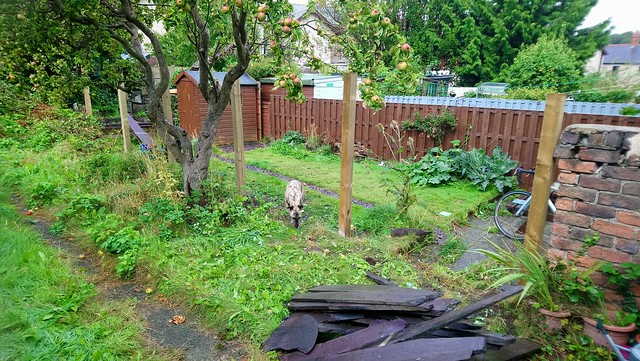Podcast: Play in new window | Download
In today’s Adventure in Etymology we’re finding out what walls, whelks and helicopters have in common.
A wall [wɔːl/wɔl/wɑl] is:
- a vertical construction made of stone, brick, wood, etc, with a length and height much greater than its thickness, used to enclose, divide, or support
- a structure or rampart built to protect and surround a position or place for defensive purposes
[source]
It comes from the Middle English wal (wall), from the Old English weall [wæ͜ɑɫ] (wall), from the Proto-Germanic *wallaz/wallą (wall, rampart, entrenchment), from the Latin vallum (wall, rampart, entrenchment, palisade), from vallus (stake, palisade, point), from the PIE *welH- (to turn, wind) [source]
English words from the same PIE root (via Old English) include walk, wallow, well (source of water, etc), and welk [source].
The word helix also comes from the same PIE root, via the Latin helix (ivy, willow, whorl), and the Ancient Greek ἕλιξ (hélix – spiral) [source], as does the word helicopter, via the French hélicoptère (helicopter), from the Ancient Greek ἕλιξ (hélix) and πτερόν (pterón – feather, wing) [source].
Here’s a video I made of this information:
Video made with Doodly – an easy-to-use animated video creator [affiliate link].
I also write about etymology, and other language-related topics, on the Omniglot Blog.
You can also listen to this podcast on: Apple Podcasts, Stitcher, TuneIn, Podchaser, PlayerFM or podtail.
If you would like to support this podcast, you can make a donation via PayPal or Patreon, or contribute to Omniglot in other ways.










